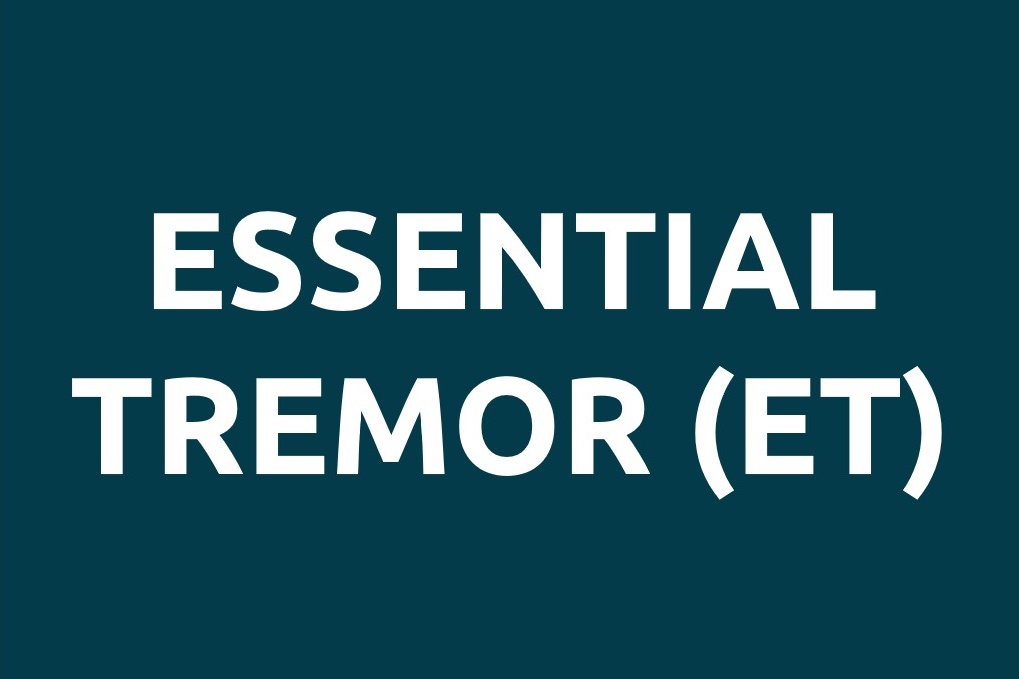

What is Essential Tremor (ET)?
Essential tremor (ET) is the most common movement disorder. It is also known as benign essential tremor, familial tremor, or hereditary tremor. Patients with ET may experience uncontrollable shaking (tremor) in the hands, head, voice, or other body parts. The condition usually begins as an adult and may gradually become worse with age. Tremor is typically most noticeable when holding the hands outstretched or making fine hand movements, such as holding a cup, using a spoon, or writing. Stress often makes the tremor temporarily worse.
What is the Cause?
The cause of ET is unknown, but more than half of patients have another family member with tremor. Researchers have not found the gene(s) that cause ET. For patients with a family history of ET, symptoms tend to begin at an earlier age. Researchers think ET develops in the brain, but patients’ brain scans appear normal. There is no diagnostic test for ET. However, your doctor may test your blood for other conditions such as thyroid disease that could worsen the tremor. Some medications may also worsen tremor.
Is there a treatment for Essential Tremor?
Some patients may benefit from medications. Medications are usually given on a trial-and error basis. Some work better than others depending on the individual patient. Patients with certain types of tremor may benefit from botulinum toxin injections. This botulinum injections need to be repeated every 3-4 months. In very severe cases surgery is also a good option for functional recovery.
Is Essential Tremor a form of Parkinson’s Disease?
No. ET is about 10 times more common than Parkinson’s disease (PD). Unlike ET, the hand tremor of PD is most obvious when a patient’s hands are relaxed and not when they are being used for activities. Other signs of PD, but not ET, include slowness of movement, walking difficulties, and other exam findings.
Is There a Treatment for Ataxia?
Treating ataxia depends on the cause. If the ataxia is due to drugs or toxins, stopping the exposure to that agent may improve the ataxia. Treatment may be possible for certain vitamin deficiency, tumor, autoimmune issues or metabolic disease. Some genetic ataxias may have a specific vitamin or drug treatment. When there is no specific treatment available, physical, occupational and speech therapy may help to improve the function and quality of life of patients with ataxia.
